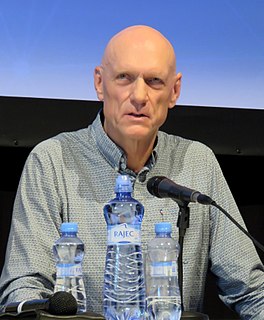A Quote by Michael Specter
Most reputable scientists agree that climate change is real and that the effects are likely to be bad. But nobody can say for sure exactly what 'bad' means. The safest and most equitable way out of this horrific mess is simple: cut fossil-fuel emissions.
Related Quotes
We need policy change, and the most important thing people can do is to contribute and participate in the political process. We have to vote climate change deniers and people who will create subsidies for the fossil fuel industry out of office. We have to protest when bad decisions are being made about fracking or tar sands.
CO2 is a minor player in the total system, and human CO2 emissions are insignificant compared to total natural greenhouse gas emissions. Therefore, lowering human CO2 emissions will have no measurable effect on climate, and continued CO2 emissions will have little or no effect on future temperature....While controlling CO2 emissions from burning fossil fuels may have some beneficial effects on air quality, it will have no measurable effect on climate, but great detrimental effects on the economy and our standard of living.
Some urge we do nothing because we can't be certain how bad the (climate) problem might become or they presume the worst effects are most likely to occur in our grandchildren's lifetime. I'm a proud conservative, and I reject that kind of live-for-today, 'me generation,' attitude. It is unworthy of us and incompatible with our reputation as visionaries and problem solvers. Americans have never feared change. We make change work for us.
Kyoto is likely to yield far less than the targeted emissions reduction. That failure will most likely be papered over with creative accounting, shifting definitions of carbon sinks, and so on. If this happens, the credibility of the international process for addressing climate change will be at risk.
































